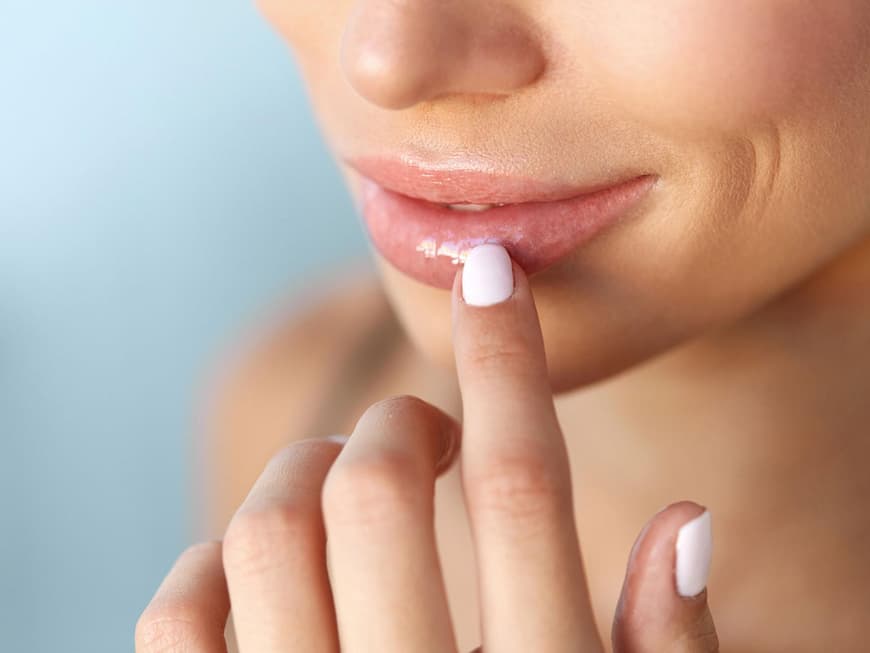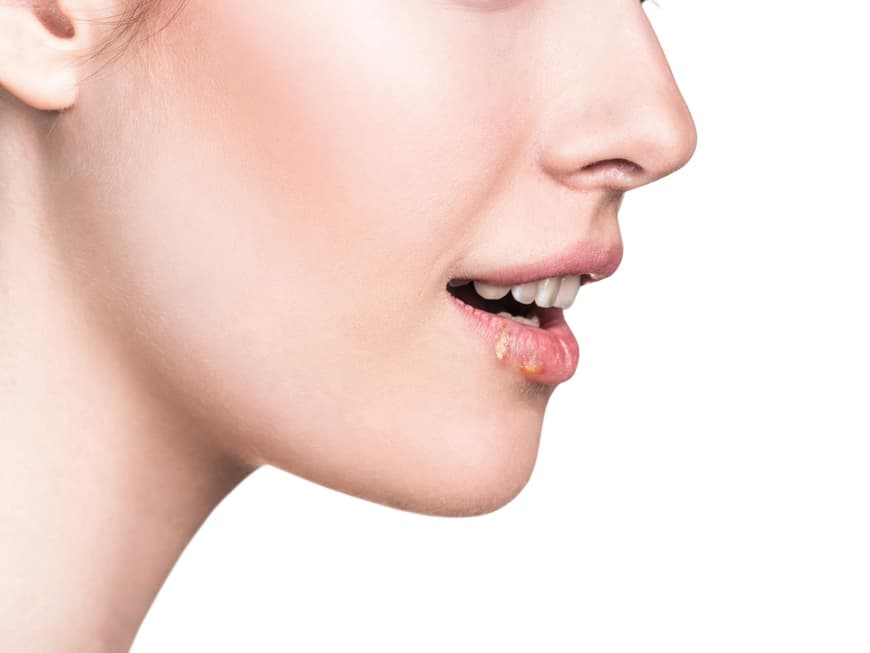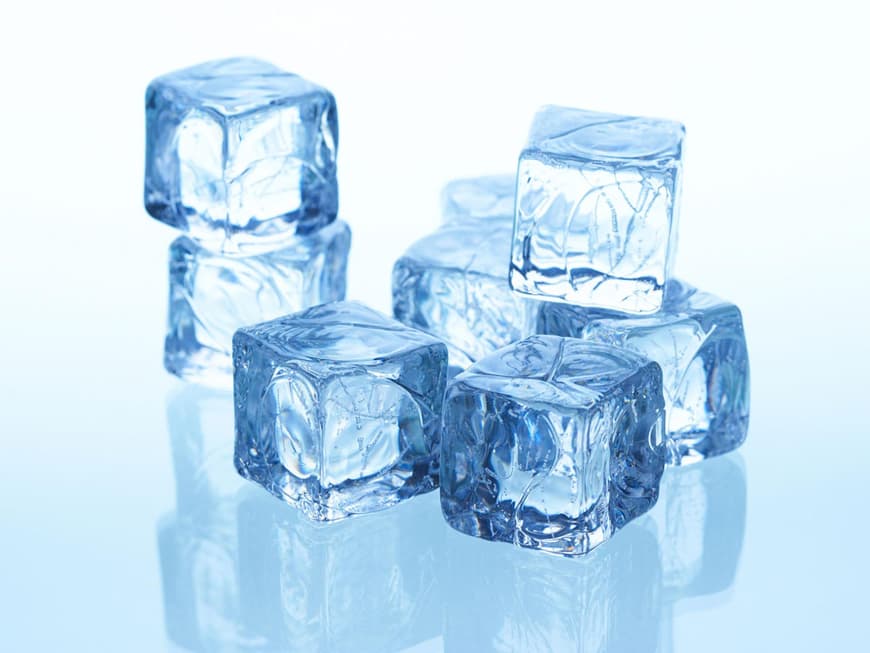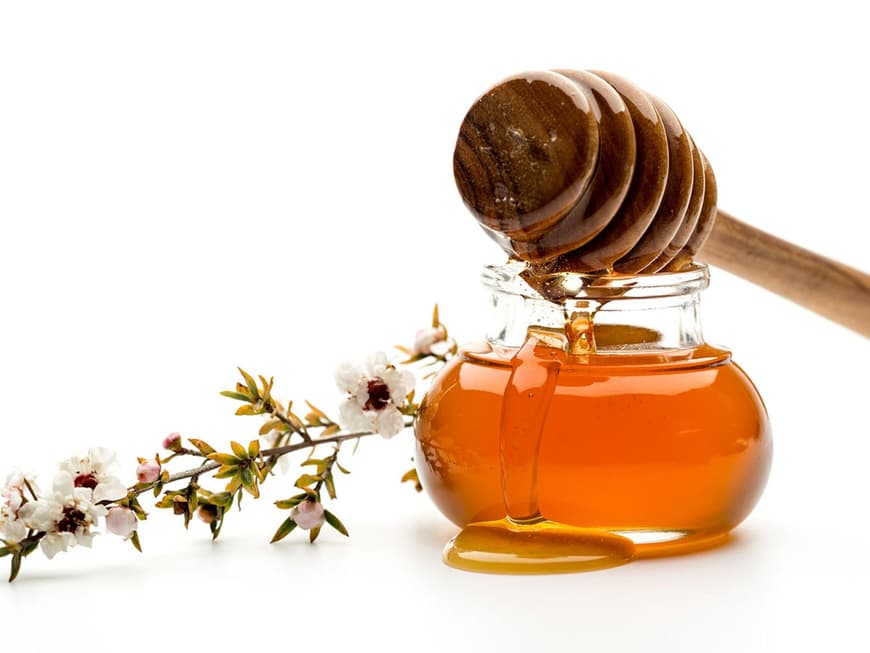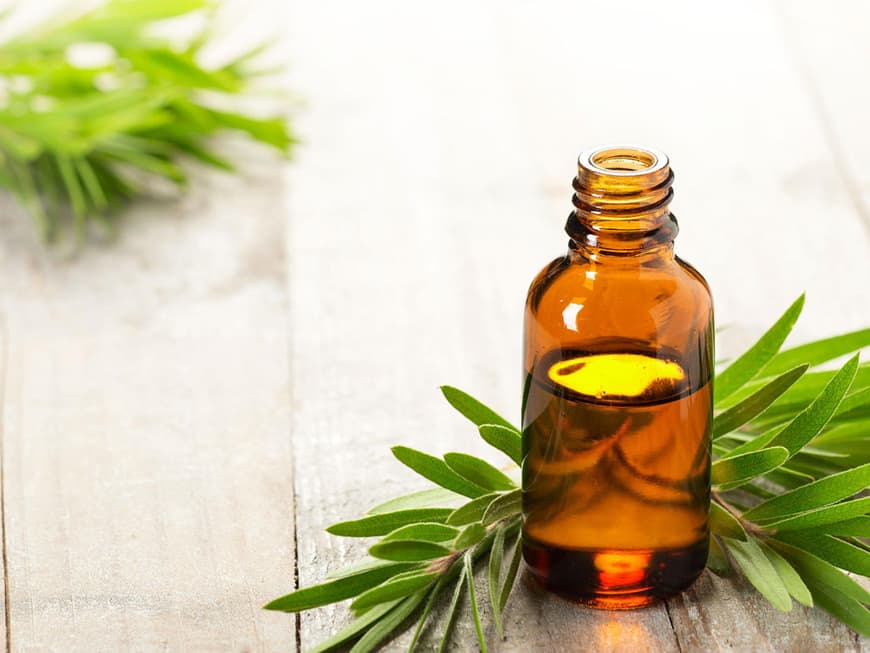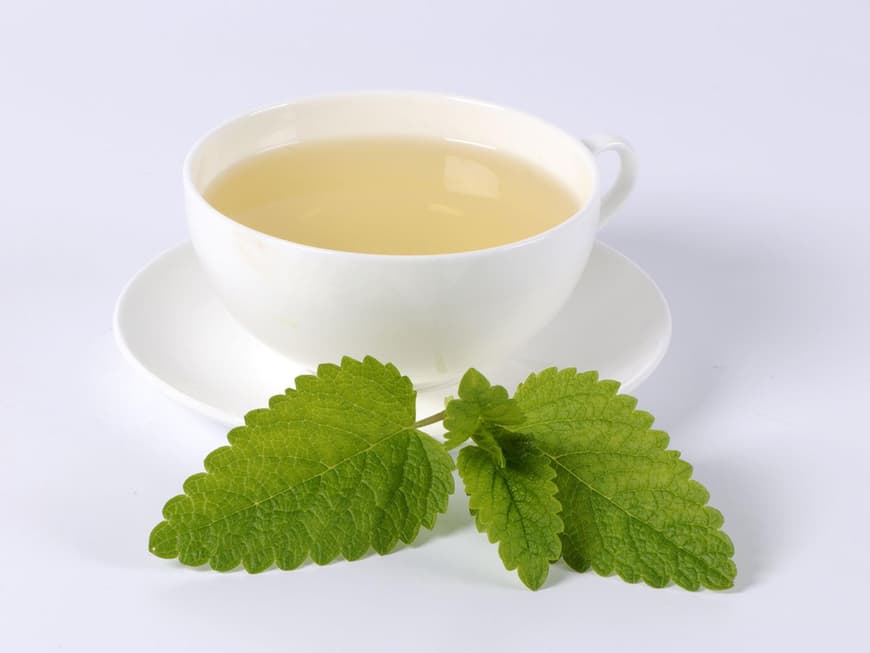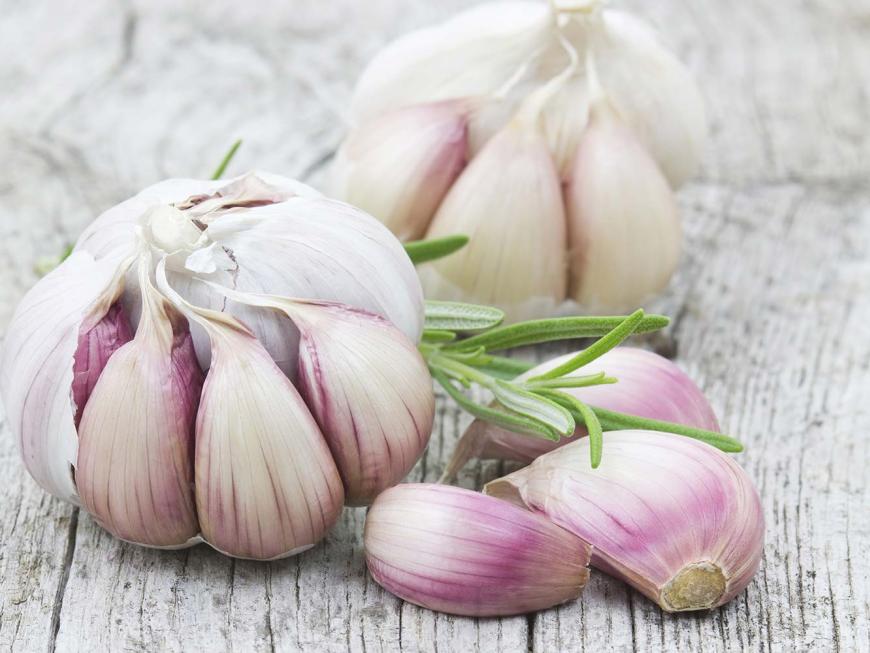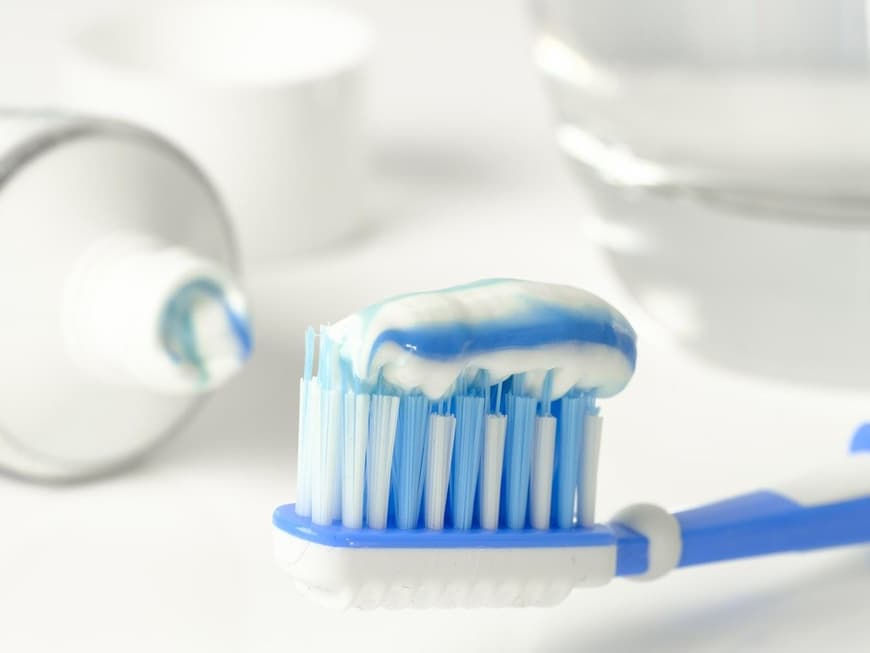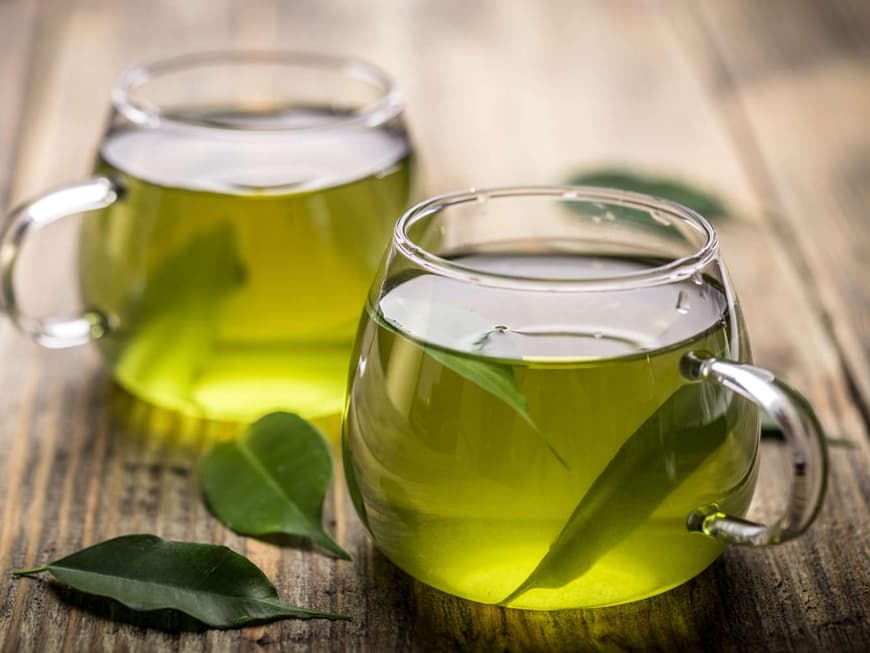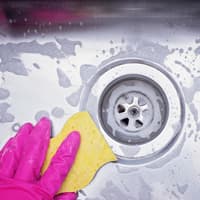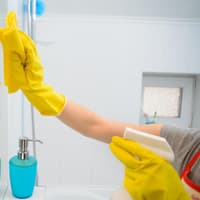Home remedies for herpes
Whether home remedies for herpes are always an alternative to medication, or even help better, cannot of course be said across the board. They can provide relief, depending on how severe the cold sores are. If the home remedies fail and your doctor ultimately prescribes medication for herpes, then it is certainly for good reason. There is one thing you should know: Herpes is a virus that you can never get rid of! The viral DNA lies dormant in the nerves and produces new viruses in certain situations. Unfortunately, our immune system does not recognize the viral DNA as a threat, which is why it is not combated. So you shouldn't keep tinkering with herpes yourself forever. If the nasty blisters appear repeatedly and frequently, you should see a dermatologist.
Almost all of us carry antibodies against the virus in our blood - herpes simplex type 1 can be detected in almost 90 percent of Germans. However, it only triggers the annoying herpes blisters in around a third of people. They not only look unpleasant, they are one thing above all: painful! People who repeatedly suffer from cold sores are constantly on the lookout for products that really help against herpes. As a rule, it's hard to really find anything, but there are some home remedies that can make the symptoms more bearable.
Herpes on the nose: what you can do against the highly contagious viruses
Which home remedies really help or alleviate herpes
1. ice cubes and zinc prevent the spread of herpes
Herpes viruses don't like the cold, and neither does excessive heat. Dabbing with ice cubes can therefore help initially. However, these should not be placed directly on the affected areas, but rather wrapped in a clean cloth. The skin should not be shock-frozen. If the lip tingles, a zinc ointment can often prevent cold sores from developing in advance. So if you often suffer from herpes, you always have it in the house.
2. turmeric against herpes
The yellow tuber is a real jack-of-all-trades: turmeric contains the active ingredient curcumin, which is particularly effective against herpes viruses and inhibits their multiplication. The turmeric is cut into slices and placed on the affected areas. It's that simple!
3. honey helps to heal wounds
Honey is also a frequently used home remedy for herpes. It contains antimicrobial substances. These kill bacteria and viruses and prevent them from multiplying. You can simply apply a little honey to the affected area. Tip: Wash your hands beforehand so that no new dirt or bacteria are transferred. Otherwise use cotton buds to apply the honey. As honey also seals open areas, this reduces the external spread of the virus - and therefore also the risk of infection.
Which honey is suitable?
In principle, any honey is suitable for use against herpes. However, liquid honey adheres less well to the lips than solid varieties. Manuka honey, which is extracted from the flowers of the South Sea myrtle in New Zealand and contains the active ingredient methylglyoxal, is said to be particularly suitable in terms of its ingredients. Manuka honey is available in pharmacies, drugstores and health food shops. There is a well-rated manuka lip care product here.
4. tea tree oil has a disinfectant effect on herpes
Tea tree oil also has an antimicrobial effect. The disinfectant effect of tea tree oil was already known in the late 18th century. It is best to apply a few drops to the affected areas every hour to prevent the viruses from multiplying. But be careful: tea tree oil is often used or advertised as a jack-of-all-trades. However, undiluted tea tree oil is harmful to your health. Therefore, please only use it in consultation with your doctor or pharmacist.
5. lemon balm - a home remedy for herpes with proven effectiveness
Lemon balm is an old and valuable household remedy whose healing powers are also effective against herpes. It is one of the few household remedies whose effectiveness has been proven in studies. Lemon balm prevents herpes viruses from penetrating the body's cells. A significant improvement in the affected areas is said to have been observed after just a short time. Ointments containing lemon balm extract are available over the counter in pharmacies. In the early stages, the affected areas can also be sprinkled with lemon balm tea.
6. aloe vera accelerates the healing of herpes
Aloe vera, the super plant - it also has antibacterial and antiviral properties. Used regularly, it reduces pain and inflammation, disinfects the affected areas and accelerates the healing process of herpes blisters. Simply cut a fresh, thick leaf from your aloe vera plant and remove the gel it contains. Then dab the affected areas with the gel using washed fingers or a cotton bud and leave to dry. Allow a few hours to pass before the next application so that the ingredients can take effect. Before the next application, remove the dried gel with lukewarm water and dab the affected areas carefully but thoroughly. The application should be repeated over several days.
7. garlic for cold sores
If you feel the first tingling or itching and can already see the first cold sores, you can also cut up a clove of garlic and hold a piece of it on the affected area of the lip for 10 to 15 minutes. You should then clean the area and repeat the process five times a day for two days. Garlic is also said to have a disinfectant and antiviral effect, which is why it is also said to help against herpes.
8. home remedy for herpes: black and green tea
Both black tea and green tea contain tannins that have an anti-inflammatory effect. They therefore help the nasty cold sores to subside.
First heat water for the tea and then leave a tea bag to infuse for one minute. Now remove the bag from the water and leave it to cool. Then place it on the cold sores for about 10 minutes. Repeat the application for herpes several times a day.
9. zinc against herpes
Although zinc is not effective against viruses, but against bacteria, its antibacterial effect alleviates the symptoms because zinc ointments dry out the weeping blisters. This is also the reason why many people resort to toothpaste, as zinc ointments and toothpaste have the same effect in this respect. However, zinc ointments do not contain irritating substances, which is why toothpaste is not a good solution for treatment.
Home remedies for herpes: a conclusion
As you can see, there really are quite a few home remedies for herpes. However, which one actually relieves your symptoms can be very individual. In some cases, home remedies can even cause the condition to worsen. In such a case, you should of course stop treatment with the respective home remedy immediately. You should also avoid using several different home remedies for herpes at the same time. Otherwise this can lead to interactions and skin irritation.
Note: After using the home remedies for herpes, remember to wash and disinfect your hands thoroughly to prevent further transmission of the virus.
Be careful with toothpaste as a home remedy for herpes
Toothpaste is often recommended as a home remedy for herpes. Although it dries out the spots, its irritating ingredients can hinder the healing process or even make it worse. So it's better to keep your hands off it!
Labialis: Trigger for cold sores
An outbreak often occurs when the immune system is already weakened and can no longer keep the viruses in check. This is why itching, burning and, shortly afterwards, the so-called cold sores on the mouth usually occur in combination with other infections. Anyone who regularly suffers from herpes should try to boost their immune system, as the whole body is weakened in the long term. It is therefore important to get enough sleep, eat a healthy diet and go out into the fresh air, as well as using conscious relaxation techniques, for example, to calm down. Stress also plays a role as a trigger. Too much UV radiation also favors cold sores. If you spend a lot of time in the sun, you should use lip care with a sun protection factor as a preventative measure. Caution: Labial herpes is an infectious disease that is mainly transmitted via the fluid in the blisters or via skin contact. Once you have contracted the virus, it stays with you for life.
Herpes can occur not only in the mouth, but also in the nasal region, with blisters appearing on the nose or mucous membranes, for example. In rare cases, herpes viruses can also enter the eye.
Read here to what extent diet can play a role in herpes
Infection with cold sores
Cold sores are particularly contagious when the blisters are visible. This is because they contain a lot of viruses. During this time, you should not kiss your partner or share drinks or cutlery. Once the outbreak is over, the risk of infection decreases again. However, as the viruses can also be detected in saliva, cold sores can also be transmitted without symptoms. Labial herpes cannot be transmitted during pregnancy, but it can be transmitted to the baby in the acute stage.
Herpes due to hormonal changes
Herpes nests in the inner nerve cells and can live a dormant existence there for years until the annoying disease breaks out again. As already described, this can happen due to sun-related UV radiation, for example. Fever or tumor diseases can also be the trigger. What many people don't know, however, is that hormonal changes such as menstruation or the menopause can also promote an outbreak of herpes. In summary, it can be said that herpes is triggered by a weakened immune system, which also includes fluctuations or changes in the hormonal system.
What kills herpes viruses?
There are two main active substances used in medication against herpes viruses: Acyclovir and penciclovir, as both substances inhibit the multiplication of herpes viruses. However, they are only effective if they are used early in the course of the disease.
Patches against cold sores
As an alternative to creams, there are so-called herpes patches. The hydrocolloid patches are free of active ingredients and are designed to cover the infected area. This has the advantage of preventing the transmission and spread of viruses and also protects the wound from external irritants and bacteria. At the same time, the plaster provides a moist wound healing environment, which is ideal, as this allows the wound to heal more quickly and reduces the formation of nasty crusts. It is important that the patch is applied to the wound in a sterile manner to prevent superinfection. A patch sticks for a good half a day, i.e. up to twelve hours, and can be covered with make-up.

